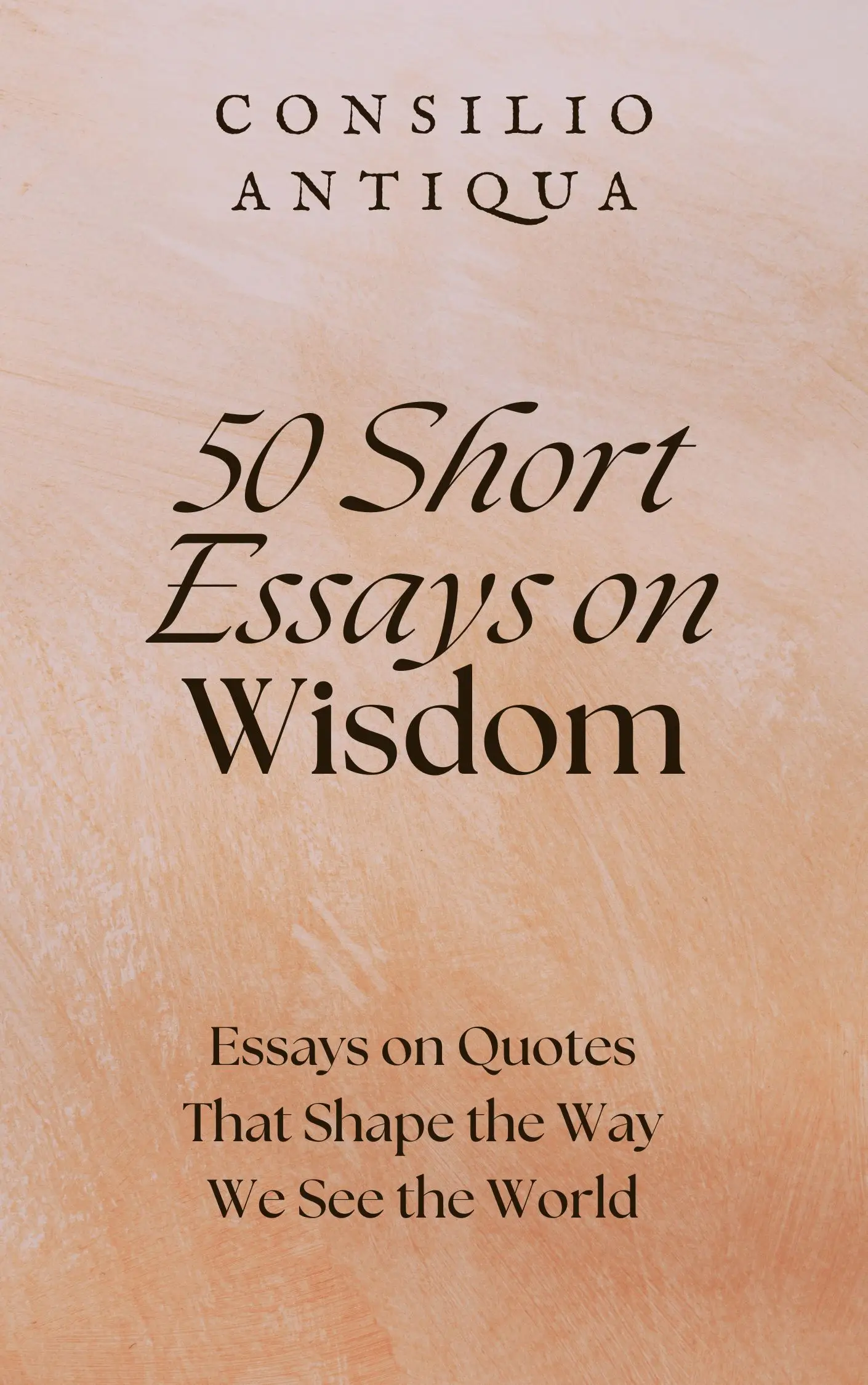
50 Short Essays on Wisdom | The Quill's Quiet Revolution
The Quill's Quiet Revolution
"The pen is mightier than the sword." - Edward Bulwer-Lytton
The whisper of a pen across parchment, the click of keys on a keyboard – these seemingly insignificant sounds hold a power that eclipses the clang of steel. Bulwer-Lytton's enduring proverb, a simple yet profound statement, speaks to the transformative potential of words, a potential that resonates deeply in our increasingly complex world. This essay will explore the enduring wisdom behind this adage, examining its historical context and its profound relevance to the challenges and opportunities of the 21st century.
The proverb's origins lie in the burgeoning era of the printing press, a time when the dissemination of ideas began to challenge the established power structures reliant on brute force. The sword, a symbol of conquest and control, found its match in the pen, a tool capable of shaping minds and inspiring revolutions. Think of the pamphlets that fueled the American and French Revolutions, the potent words of abolitionists dismantling the institution of slavery, or the literary giants who, through their narratives, challenged societal norms and ignited social change. The pen, in its various forms, became a weapon of a different kind – a weapon of ideas.
At its core, the proverb's wisdom lies in the understanding that words possess an unparalleled capacity to shape our perceptions, beliefs, and actions. They are the building blocks of narratives, the architects of reality. They can inspire hope, ignite passion, or sow discord. A single sentence, carefully crafted, can alter the course of a life, a relationship, or even a nation. The power of words lies not just in their ability to inform, but in their capacity to persuade, to move, to transform. This enduring power stems from their ability to reach the deepest recesses of the human heart, to stir emotions, and to awaken consciousness.
Today, the "pen" manifests in countless forms – from the meticulously researched article to the viral social media post, from the carefully constructed novel to the persuasive political speech. Consider the impact of social media, a double-edged sword capable of both amplifying voices of dissent and spreading misinformation with alarming speed. The rise of "fake news" and the manipulation of public opinion highlight the potential for misuse, reminding us that the power of the pen demands responsibility and ethical consideration. Yet, simultaneously, we witness the power of words to connect individuals across geographical boundaries, to foster empathy and understanding, and to mobilize collective action for social justice. The ongoing struggle for equality, environmental protection, and global peace are testaments to the power of collective voices, raised through the written and spoken word.
Reflect for a moment on your own life. How have words – spoken, written, or read – shaped your understanding of the world? Consider the narratives that have resonated most deeply within you, the stories that have inspired you to action, or the words that have offered solace in times of hardship. What role do you play in shaping the narratives that surround you? How can you use your own "pen" – your voice, your writing, your communication – to promote understanding, empathy, and positive change? The conscious cultivation of thoughtful communication, the deliberate crafting of narratives that foster connection and understanding, is a responsibility we all share.
In conclusion, Bulwer-Lytton's proverb remains profoundly relevant in a world saturated with information. The "pen," in its modern iterations, holds the power to build bridges or erect walls, to inspire hope or sow division. The choice, ultimately, rests with us. Let us wield this power with intention, responsibility, and a deep understanding of its potential to shape not only our individual lives, but the future of humanity itself.
